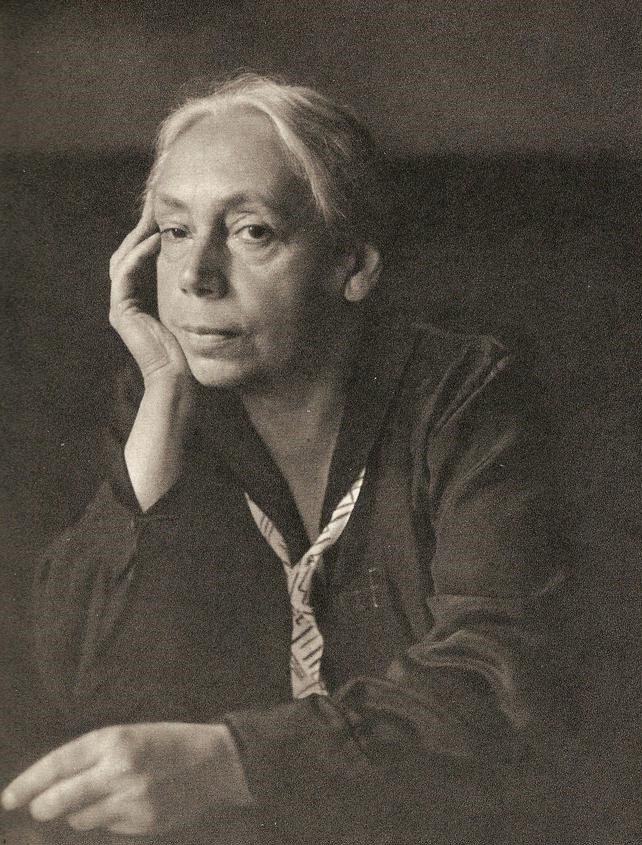Käthe Kollwitz – niemiecka graficzka, malarka i rzeźbiarka. Wpływ na jej realistyczne litografie, miedzioryty, akwaforty, drzeworyty i rzeźby, oparte na osobistych doświadczeniach i obserwacji warunków życia, miał ekspresjonizm i sztuka zintegrowana.
Uczyła się w Berlinie u K. Stauffer-Berna i w Monachium, w Académie Julian w Paryżu , oraz we Włoszech .
W 1919 zaliczona w poczet członków Paryskiej Akademii Sztuk. Znana z pełnych wyrazu szkiców, drzeworytów, akwafort i litografii, w których wyrażała proletariackie, komunistyczne i pacyfistyczne sympatie. Do najważniejszych jej prac należą: cykle graficzne „Powstanie tkaczy” i „Wojny chłopskie” , plakat „Nigdy więcej wojny”, który ukazał się po zakończeniu I wojny światowej, litografie i drzeworyty: „Wojna” , „Triumf nad burżuazją” , „Wyzysk” „Proletariat” , „Śmierć” , rzeźby, np. „Skarga” .
Zarówno rząd cesarski, jak narodowi socjaliści odnosili się do Kollwitz z nieufnością. Podczas bombardowania w 1943 r. wiele jej prac uległo zniszczeniu.
Käthe Kollwitz zmarła w 1945 r. w Moritzburgu, pod Dreznem.
Rysy Käthe Kollwitz nosi rzeźba Ernsta Barlacha Der Schwebende z 1927 r., poświęcona pamięci ofiar I wojny światowej, zawieszona w kolegiacie w Güstrow i jej replika w kościele antonitów w Kolonii.
Wikipedia
✵
8. Lipiec 1867 – 22. Kwiecień 1945
